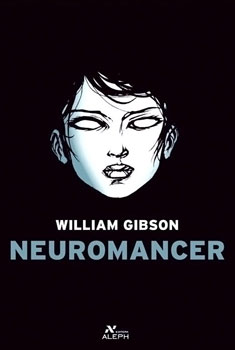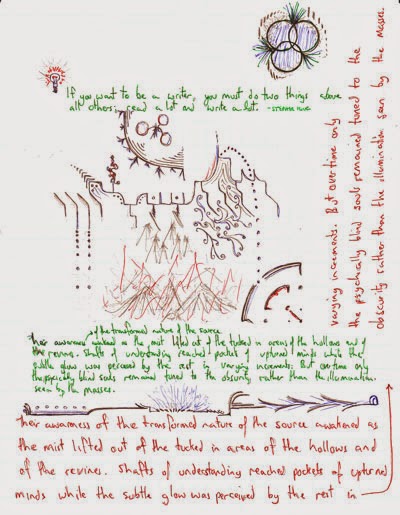I am all over the place in my mind this week (what's new). Words like story, relationship, isolation, journeys, sharing, and gifts are bouncing around in my head along with a head cold and too much coffee...
Facebook: This week I shared the following status update on Facebook: Next five days... married for 17, together for 23, sober for 25. Just a little bragging here. Thanks Kat and all the rest who are the glue in those crazy numbers. I am not one to normally count "Likes" too much, but I was taken aback by the percentage of my friends list took a moment to click (14.6% for those who like statistics). What was it that resonated with a big chunk of my "friends"? I am assuming it is a combination of several things; the components might be... The approval of my long marriage with Kat? The support for my sobriety? The participation in being some of the glue? At the heart of all of these reasons is relationships. Relationships are what people make with each other. The need for meaningful relationships is so critical for our well-being. I am reminded of the lesson offered in the book Into the Wild by Jon Krakauer. Here is part of the plot summary found on Wikipedia of the movie made from Krakauer's book:
MAJOR SPOILER TO FOLLOW: IF YOU PLAN TO READ THE BOOK OR WATCH THE MOVIE YOU MAY NOT WANT TO READ THE NEXT FEW PARAGRAPHS. (If you do not wish to read the spoiler, listen to Eddie Vedder's beautiful piece from the movie, Society.)
In May 1992, Christopher McCandless (Emile Hirsch) arrives in a remote area just north of the Denali National Park and Preserve in Alaska and sets up a campsite in an abandoned bus, which he calls The Magic Bus. At first, McCandless is content with the isolation, the beauty of nature around him, and the thrill of living off the land. He hunts wild animals with a .22 caliber rifle, reads books, and keeps a diary of his thoughts as he prepares himself for a new life in the wild.
Four months later at the abandoned bus, life for McCandless becomes harder and he becomes less discerning. As his supplies begin to run out, he realizes that nature is also harsh and uncaring. In the pain of realization, McCandless concludes that true happiness can only be found when shared with others and seeks to return from the wild to his friends and family.... ....Slowly dying, he continues to document his process of self-realization and accepts his fate, as he imagines his family for one last time. He writes a farewell to the world and crawls into his sleeping bag to die.
END OF SPOILER ZONE
Isolation and Sharing: True happiness can only be found when shared with others. That's the wisdom. We are social. It is in our nature to be social. Isolation at times is excellent. Travel with oneself is critical. Sitting quietly, alone is essential for so many of us. But we always need to return to someone or make new connections to share those quiet or isolated moments with others.
eric: I am not sure how to communicate how each of these elements connect, but I wish to offer a short story from Shaun Tan again to finish off this entry (I opened my blog in September with Tan's artwork). This story, called eric, comes for the collection tales from outer suburbia (from which the main element of my blog banner was also taken).
I think the "liking" of my anniversaries on Facebook, the wonderful and varied relationships I have in life, Christopher McCandless' isolation and final denumal, and eric's visit in our country all converge on what I have swirling in my head today. Here's eric. Enjoy.
eric
some years ago we had a foreign exchange student come
to live with us. We found it very difficult to pronounce
his name correctly, but he didn't mind.
He told us to just call him "Eric."
We had repainted the spare room, bought new rugs and furniture,
and generally made sure everything would be comfortable
for him. So I can't say why it was that Eric chose to sleep and
study most to the time in our kitchen pantry.
"It must be cultural thing," said Mum. "As long as he is happy."
We started storing food and kitchen things in other
cupboards so we wouldn't disturb him.
But sometimes I wondered if Eric was happy; he was so polite
that I'm not sure he would have told us if something bothered him.
A few times I saw him through the pantry door gap, studying with silent
intensity, and imagined what it might be like for him here in our country.
Secretly I had been looking forward to having a foreign visitor
— I had so many things to show him. For once I could be a local
expert, a fountain of interesting facts and opinions. Fortunately,
Eric was very curious and always had plenty of questions.
However, they weren't the kind of questions I had been expecting
Most of the time I could only say,
"I'm not really sure," or, "That's just how it is."
I didn't feel very helpful at all.
I had planned for us to go on a number of weekly
excursions together, as I was determined to show our
visitor the best places in the city and its surrounds.
I think Eric enjoyed these trips, but once again,
it was hard to really know.
interested in small things he
discovered on the ground.
I might have found this a little
exasperating, but I kept thinking
about what Mum had said,
about the cultural thing.
Then I didn't mind so much.
Nevertheless, none of us could help
but be bewildered by the way Eric
left our home: a sudden departure
early one morning, with little more
than a wave and a polite good-bye.
It actually took us a while to realize he wasn't coming back.
There was much speculation over dinner later
that evening. Did Eric seem upset? Did he enjoiy
his stay? Would we ever heard rom him again?
An uncomfortable feeling hung in the air, like
something unfinished, unresolved. It bothered us
for hours, or at least until one of us discovered what
was in the pantry.
Go and see for yourself: It's still there after all these
years, thriving in the darkness. It's the first thing we
show any new visits to our house. "Look what our
foreign exchange student left for us," we tell them.
"It must be a cultural thing,' says Mum.

















